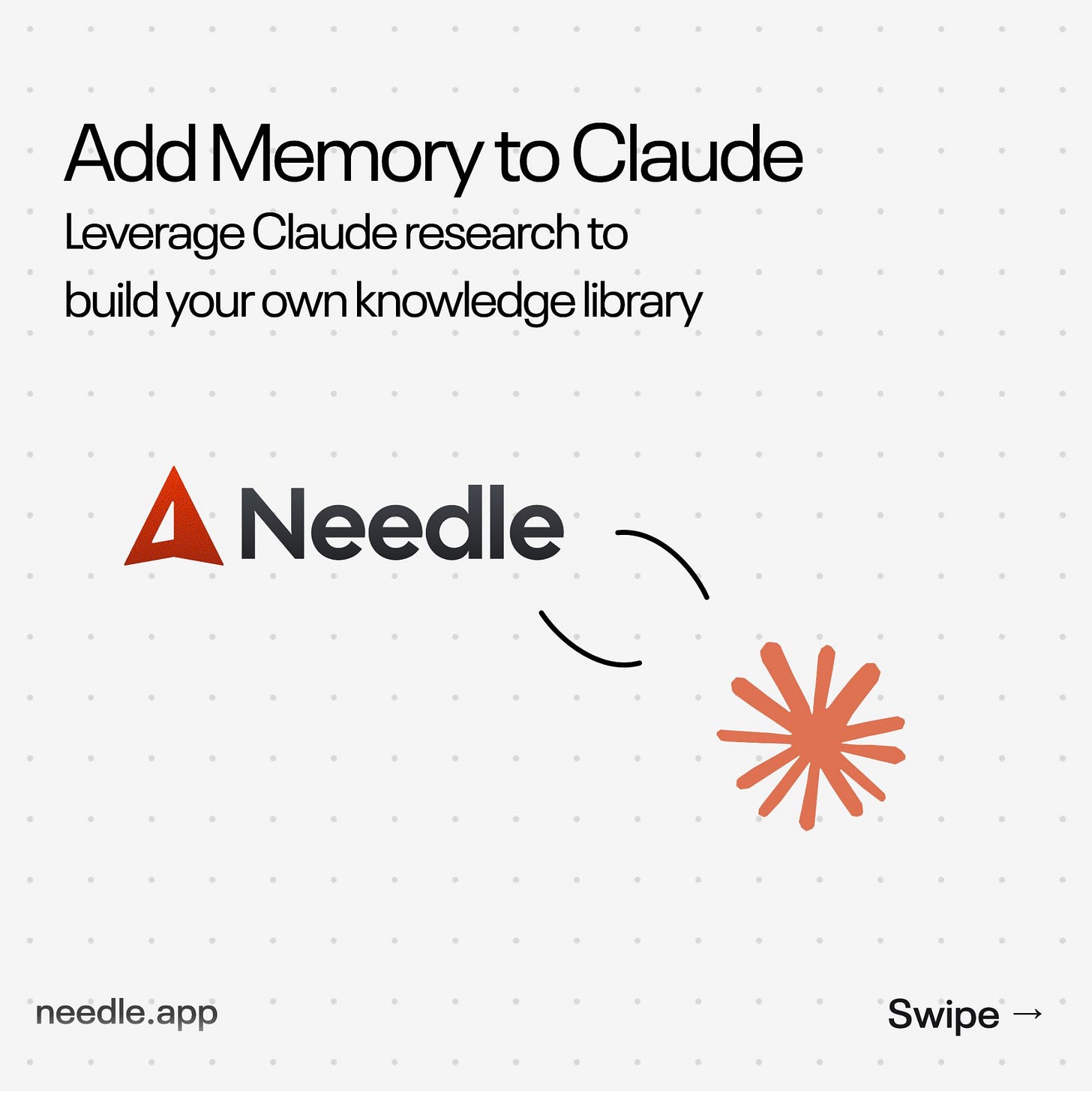Your AI Keeps Forgetting. Here’s How to Fix It.
Stop re-researching the same topics over and over.
You ask Claude to research the a topic. It searches the web, finds great sources, gives you exactly what you need.
Two weeks later? Same question. Claude searches again. Finds the same sources. Burns tokens. Wastes time.
Here’s the thing: LLMs have amnesia by design.
Every conversation starts from zero. Every research session is Groundhog Day. And you’re paying for it in tokens, time, and sanity.
The Real Cost of Forgetfulness
Think about how often you’re re-researching the same stuff:
That company doc you found last month
API references you’ve looked up five times
Competitive intel you keep needing
Industry reports you reference constantly
You’re not building knowledge. You’re renting it over and over.
And it’s costing you more than you think:
Tokens pile up fast on complex research
Time vanishes waiting for Claude to refind what you already found
Context gets buried in old chat threads you’ll never find again
What If Claude Could Actually Remember?
Different workflow:
You ask Claude to research the Confluence API once. It finds the best sources (official docs, guides, Stack Overflow answers).
Then you tell Claude: “Save these to my API docs collection in Needle.”
Done.
Now whenever you need that info, Claude searches your Needle collection. Instant answers. No web search needed. No wasted tokens. Just your curated knowledge responding in seconds.
This is permanent memory for LLMs.
How It Actually Works
Pretty simple:
1. Research Phase
Ask Claude to research something. Let it do its thing: web search, source hunting, synthesis.
2. Save Phase
Add those sources to a Needle collection. Think of it like folders: “API Docs,” “Market Research,” “Company Knowledge.”
3. Query Phase
Next time you need that info? Skip the web search. Ask Claude to search your Needle collection. It pulls relevant passages instantly.
Your research compounds. Every source you save makes your knowledge base stronger. Every query gets faster and cheaper.
Real Example
Say you’re evaluating project management tools.
Without Needle:
Week 1: Research Asana → Claude searches web
Week 3: Research Monday.com → Claude searches web
Week 5: Research Notion → Claude searches web
Week 6: “Compare all three” → Claude searches web again
With Needle:
Week 1: Research Asana → Save to “PM Tools” collection
Week 3: Research Monday.com → Add to collection
Week 5: Research Notion → Add to collection
Week 6: “Compare all three from my PM Tools collection” → Instant answer
No repeated searches. No lost context. Just knowledge that builds on itself.
From Renting to Owning
Mental shift:
Old way: LLMs are smart search engines
New way: LLMs are librarians for your personal library
You’re not just getting answers. You’re building a research library that gets more valuable over time.
Because it’s yours:
You control the sources (quality matters)
You organize by what makes sense to you
You compound your research (every session builds on the last)
Why This Matters Now
Most people still use LLMs like fancy search engines. Ephemeral. Disposable. Starting from scratch every time.
The winners will build permanent knowledge systems.
Not because they’re smarter. Because they’re not researching the same thing twice.
Get Started
Dead simple workflow:
Create a collection in Needle
Research with Claude like normal
Ask Claude to save sources to your collection
Query your collection next time instead of the web
Start with one topic you research a lot:
Company docs
A technology you’re learning
Industry research
Competitive intel
Build that collection for a month. Watch how much faster your research becomes.
What Happens After a Few Months
Your “Product Strategy” collection: 50+ sources
Your “Technical Architecture” collection: 30+ sources
Your “Market Research” collection: 40+ sources
Now when you ask Claude something, it’s pulling from your curated knowledge, not random web results.
Your research compounds. Your insights deepen. Your edge grows.
And you stop wasting tokens on stuff you already know.
Stop forgetting.
Start building at needle.app/use-cases/research



